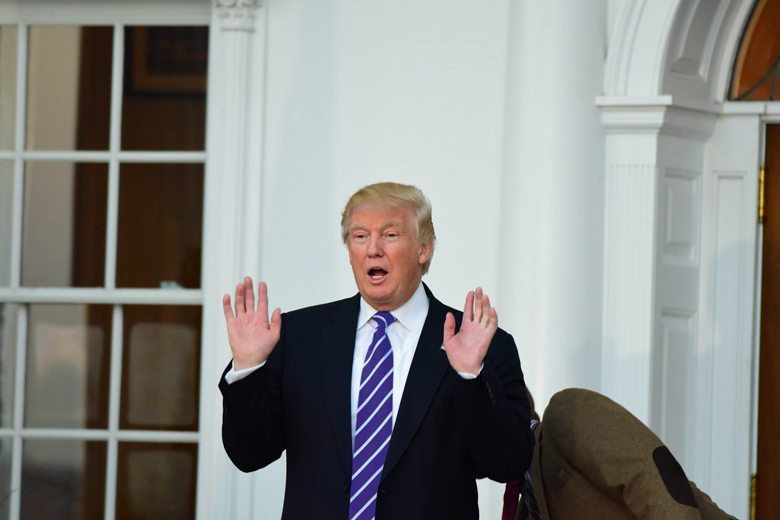

The political situations in Syria, Iran and the Palestinian territories could all be negatively affected by the arrival of Donald Trump in the White House, as could the economic outlook for the GCC states
President-elect Donald Trumps victory on 8 November has thrown up more questions than answers for the Middle East. Throughout the campaign, his belligerent rhetoric was not matched by policy detail or consistency and, as a result, his approach to the Middle East once in office remains clouded in doubt.
Based on his performance during the campaign, Trump seemed to have a thin grasp of the realities of the Middle East. His policy pronouncements on the region were often either vague (such as his claim to have a secret strategy to defeat militant group Islamic State in Iraq and Syria) or illegal (such as a promise to seize Iraqs oil and target the families of terrorists). His positions also frequently appeared contradictory; for example, calling for an end to nation-building while also urging greater promotion of American values.
In the weeks following election day, Trump rowed back from some of his more extreme campaign positions, but there is a risk that his leadership will lead to diplomatic problems and greater instability over the next four years.
Campaign pledges
Among the areas he has spoken about, Trump appears willing to give Russias President Vladimir Putin a freer hand in Syria, and has threatened to rip up the nuclear deal with Iran, which he described as one of the worst deals ever made by any country. He has also said he will recognise Jerusalem as the Israeli capital, overturning the position of successive US administrations, and will force Americas allies to contribute more to the cost of the security that Washington provides.
It is far from clear if Trump will push ahead on all these matters. Nor is it clear to what extent he has thought about the consequences of doing so. Any recognition of Jerusalem as the Israeli capital, for example, is likely to spark a resurgence of violence in the West Bank, although one senior Israeli political figure says Prime Minister Benjamin Netanyahu is certain to encourage Trump to press ahead regardless.
Stan Greenberg, a veteran political adviser and CEO of US polling firm Greenberg Quinlan Rosner Research, says Trump is expected to prove fairly inflexible on trade issues, but other areas of international relations could be different. On climate change, on foreign policy and on security issues I think those are very flexible, he says.
Fire hose
Trump will have to be a quick learner to understand the complexities of the region. The scale of this should not be underestimated. Jane Harman, CEO of the Woodrow Wilson Centre and a former Democratic member of the House of Representatives armed services, intelligence and homeland security committees, says: Hes not someone who comes with a deep background in any of these [security and foreign policy] issues, or even a background in any of these issues. I think hes inhaling from a fire hose.
Trumps attitude to US alliances fits with his self-conception as a business person
In this process, Trumps senior appointments will be critical, including the secretaries of state and defence and his senior intelligence advisers. The field of talent Trump will be able to draw on is uncertain, given his poor relationship with the Republican Party establishment. One London-based analyst who visited Washington in the days after the election, said many Republican foreign policy specialists neither expected to be offered a job in the administration nor wanted one. As a result, Trump may turn to unconventional sources of advice.
The reaction of countries within the Middle East to Trumps victory has been mixed. Iran has been quick to make clear that it expects Trump to stick to the nuclear deal. There is little appetite for redrawing the deal among the GCC countries either. And while many of Americas traditional allies will not be sad to see the end of the Barack Obama administration, which has seen the US scale back its involvement in the region, the prospect of a less predictable US president is still unsettling.
Transactional politics
Perhaps the one crumb of comfort they can draw upon is that Trump appears to favour a transactional approach to politics. If they can find ways to strike deals with him on particular topics, they might find a reasonable modus vivendi after all. His insistence that allies contribute more to the cost of their defence is one area where the Gulf countries, and Saudi Arabia in particular, can push back on with relative ease, given the amount they spend on US-made armaments.
Trumps attitude to US alliances fits with his self-conception as a business person He discusses US alliances in monetary, transactional terms, says one political analyst.
Economically, the Trump administration could have a negative impact on the region as a result of its plans for a huge domestic infrastructure programme, according to Jason Tuvey, Middle East economist at London-based Capital Economics. All other things being equal, looser fiscal policy is likely to require tighter monetary policy, he says. And the Gulfs dollar pegs and open capital accounts mean that domestic monetary conditions have to follow those in the US. As such, monetary conditions in the Gulf are set to tighten more aggressively, adding to the headwinds facing these economies.
You might also like...

LIVE WEBINAR: Abu Dhabi Oil & Gas 2024
25 April 2024

Qiddiya tenders site office package
25 April 2024

Kuwait’s oil sector could be disconnecting from politics
25 April 2024

Kuwait launches oil and gas project portal
25 April 2024
A MEED Subscription...
Subscribe or upgrade your current MEED.com package to support your strategic planning with the MENA region’s best source of business information. Proceed to our online shop below to find out more about the features in each package.







